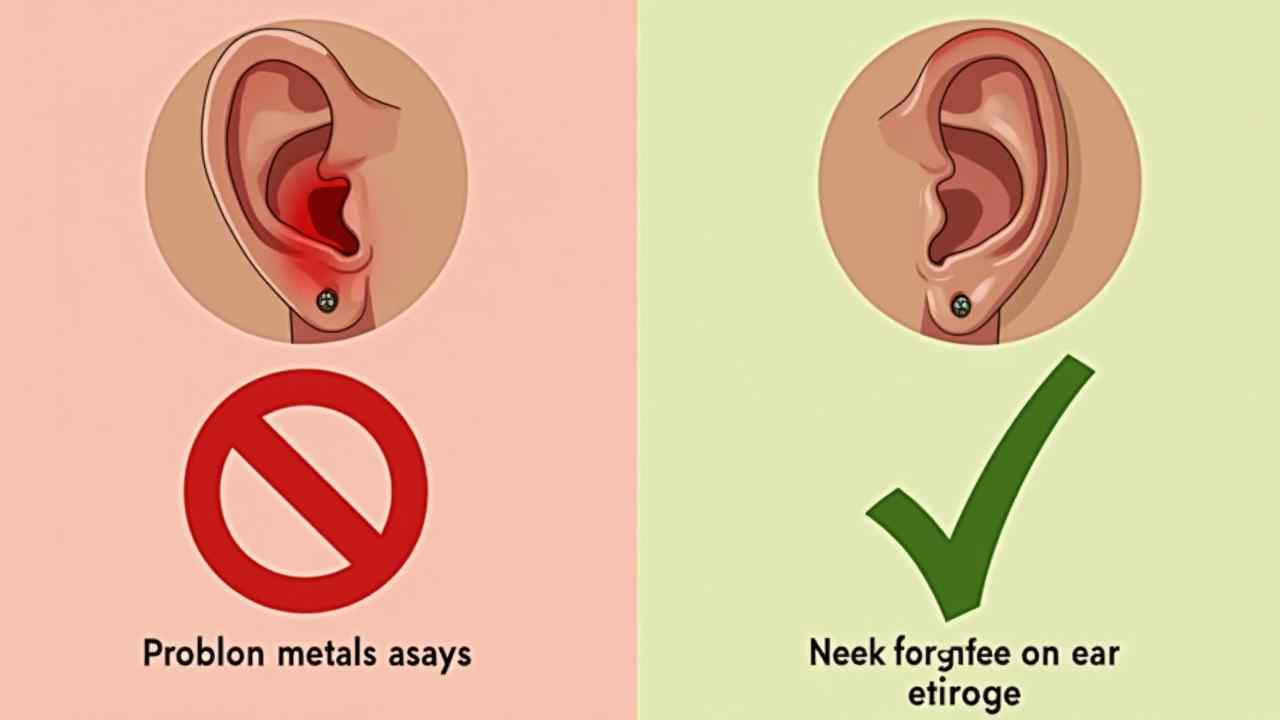
✨ A Guide to Skin-Safe Metals for Accessories (Hypoallergenic Jewelry)
✨ A Guide to Skin-Safe Metals for Your Accessories ✨
You have found the perfect pair of earrings or a beautiful new necklace. But after wearing it for just a few hours, your skin is red, itchy, and irritated. This common problem is often caused by a sensitivity to certain metals used in jewelry. Choosing skin-safe metals for accessories is the key to wearing your favorite pieces without the uncomfortable reaction.
This guide will explain the most common cause of metal allergies. We will also provide a clear list of the best hypoallergenic metals to look for. Let's find you some beautiful, comfortable jewelry that your skin will love. It is a perfect way to accessorize your cozy autumn sweaters here in Bursa! 🍂
🤔 What is the Most Common Cause of Metal Allergies?
The number one culprit behind most jewelry-related skin reactions is nickel. A nickel allergy is one of the most common contact allergies in the world. When someone with this allergy comes into contact with nickel, their immune system has an inflammatory response. This results in an itchy, red rash known as contact dermatitis.
Nickel is a cheap and durable metal. It is often used as a base metal or mixed into alloys in inexpensive costume jewelry. This is why a cheap pair of earrings is much more likely to cause a reaction than a high-quality piece.
✅ What Are the Best and Safest Metals for Sensitive Skin?
To avoid a reaction, you need to choose metals that are either pure or are known to be hypoallergenic. Here are the best skin-safe metals for accessories.
- Titanium: This is one of the safest metals you can wear. It is highly biocompatible and is the same material used for medical and dental implants. It is a fantastic choice for anyone with very sensitive skin.
- Niobium: Like titanium, niobium is a highly inert and hypoallergenic element. It is often used in high-quality body piercing jewelry for this reason.
- Platinum: This is a precious metal that is extremely pure and durable. It is an excellent but very expensive hypoallergenic choice.
- High-Karat Gold: Gold is naturally hypoallergenic. However, to make it strong enough for jewelry, it is mixed with other metals. 14-karat gold or higher is a great choice. It has a high enough gold content to be safe for most people. Be cautious with anything less than 14k, as it may contain more nickel.
- What About Sterling Silver and Surgical Steel?
These two popular metals fall into a "usually safe, but be careful" category. They are great options, but with a small catch.
Sterling Silver: By definition, sterling silver is 92.5% pure silver. The other 7.5% is usually copper, which is safe. However, in some cheaper versions, nickel can be used in the alloy. It is a good idea to ask if the silver is nickel-free. This is especially true when buying from a local artisan, like at the Grand Bazaar ("Kapalı Çarşı") here in Bursa.
Surgical Stainless Steel: While it is used for surgical instruments, some grades of stainless steel do contain a small amount of nickel. For most people, this is not a problem. However, if you are extremely sensitive, it could still cause a reaction.
🚫 What Metals Should You Generally Avoid?
If you have sensitive skin, you should be very wary of these metals. They are common in cheap, fast-fashion jewelry.
- Nickel-Plated Jewelry: The thin plating can wear off quickly, exposing your skin to the nickel underneath.
- Brass and Bronze: These alloys often contain nickel or other irritants.
- Costume Jewelry: If the metal is not clearly identified, it is best to assume it contains nickel.
By investing in high-quality, skin-safe metals for accessories, you can enjoy your jewelry without the itch. Your skin will thank you! ✨